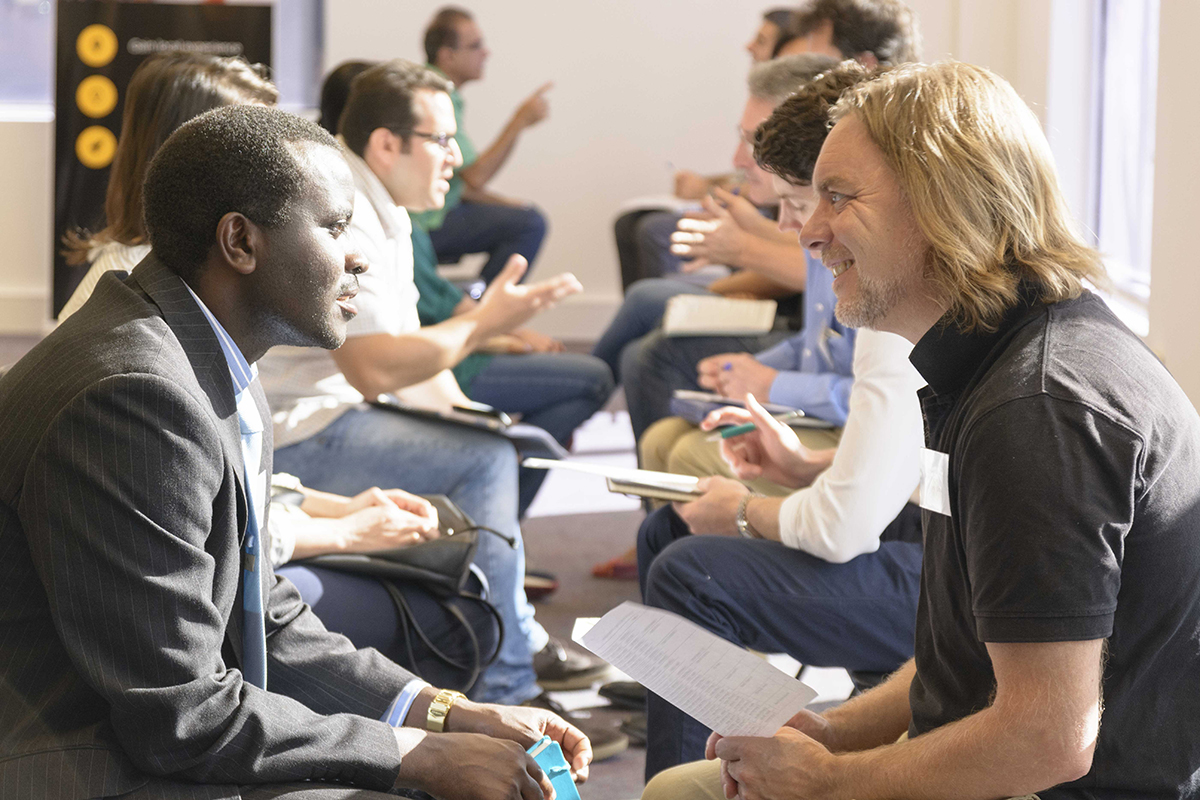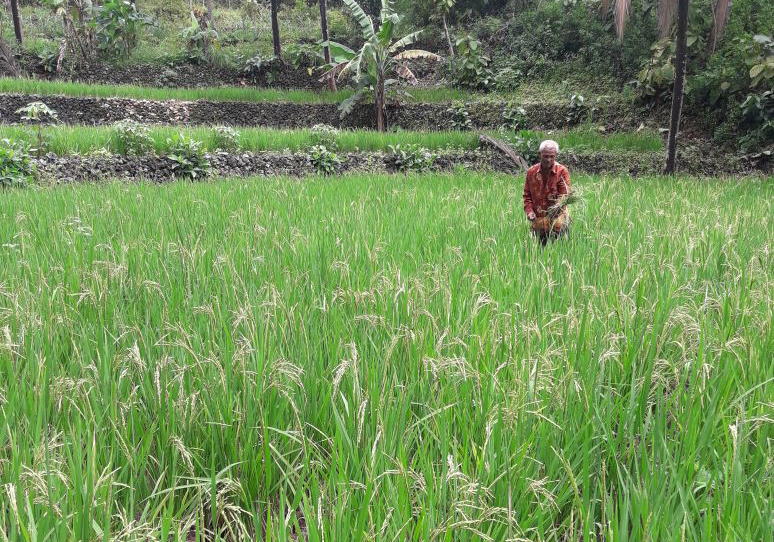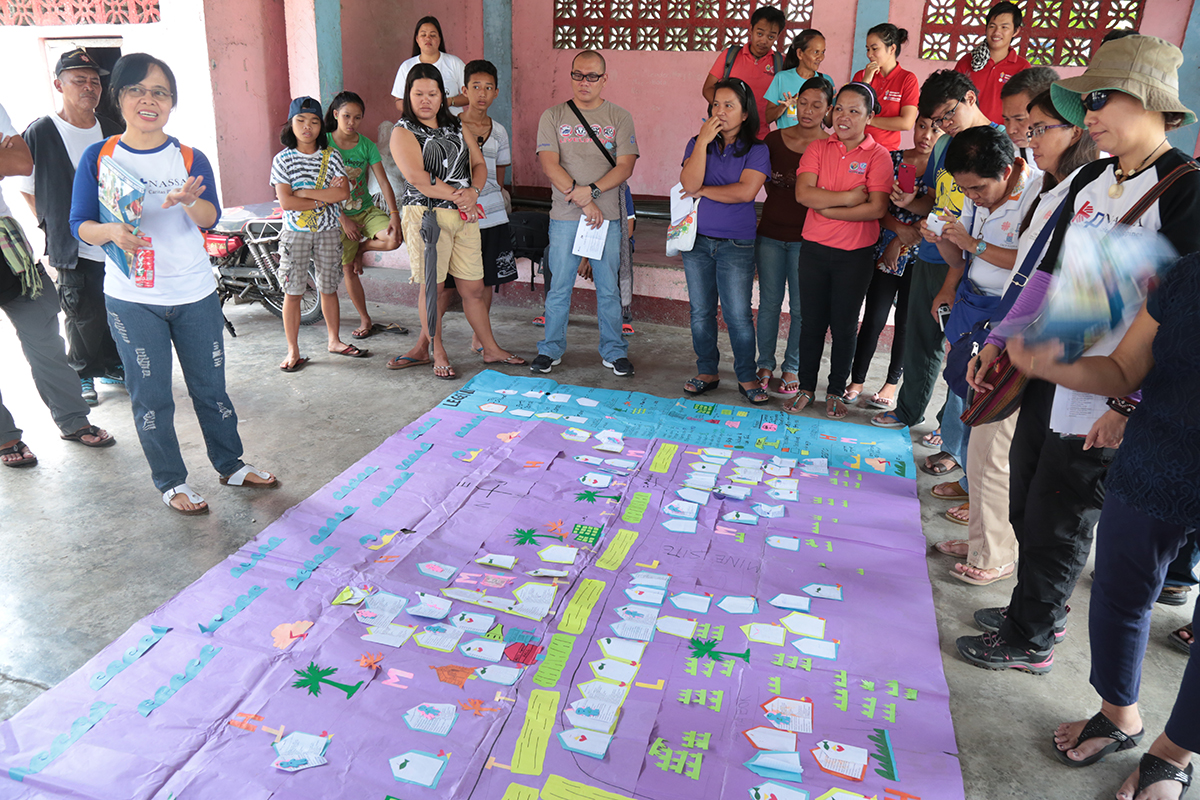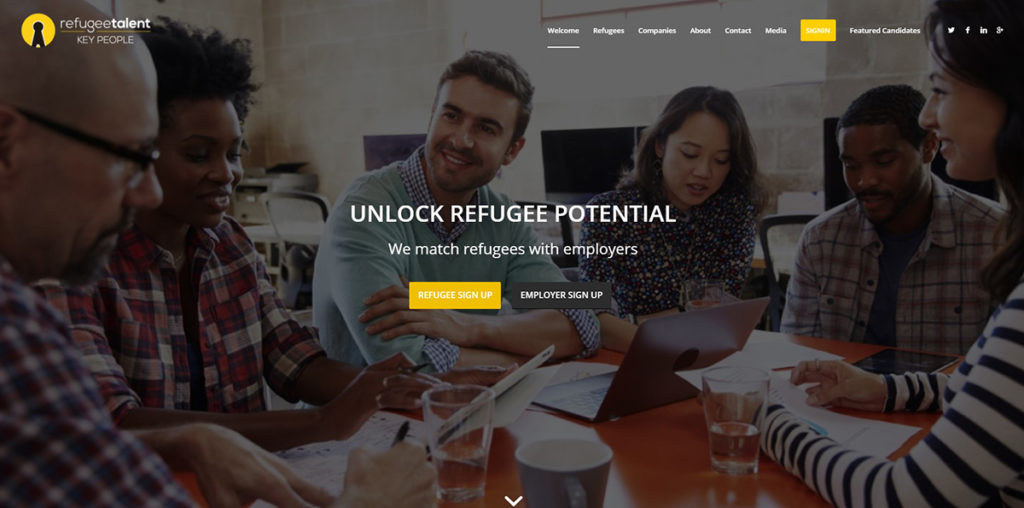
Writing proposal is a work to unfold challenges, your enthusiasm and achievement till today, and put everything in order.
The Refugee Assets project uses an online job matching platform and end-to-end support services to provide employment to refugees in the Asia-Pacific and meet labour shortages in the region. The project team joined the innovation workshop convened in Jakarta, July 2017, to develop the idea, and has been granted a seed funding from the HIF. Their story demonstrates how their enthusiasm and effort led their ideas to mature and attracting not only the funding but also supporters and partners along the course.
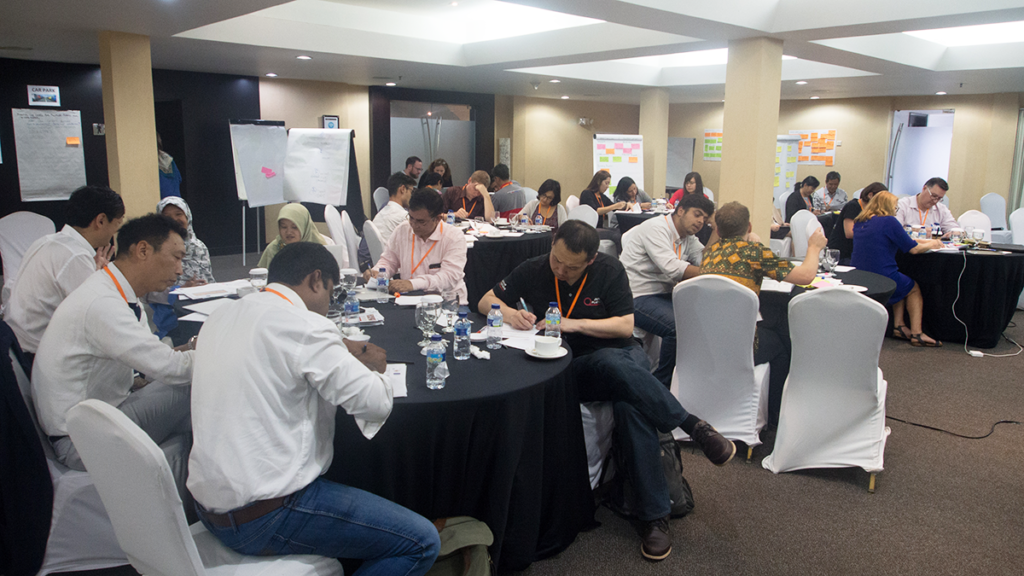 Participating in the ADDRN/HIF workshop was like a mini ‘incubator’ program for us where we could share, test and refine our proposal. During the three days of the workshop, we received valuable feedback and input from our fellow innovator team members, advisors from ADDRN, Tokyo Innovation Hub, HIF and UNHCR representatives. We were inspired by the creativity, enthusiasm and dedication of everyone involved, as well as the willingness to collaborate and work with each other to solve the challenges facing each team.
Participating in the ADDRN/HIF workshop was like a mini ‘incubator’ program for us where we could share, test and refine our proposal. During the three days of the workshop, we received valuable feedback and input from our fellow innovator team members, advisors from ADDRN, Tokyo Innovation Hub, HIF and UNHCR representatives. We were inspired by the creativity, enthusiasm and dedication of everyone involved, as well as the willingness to collaborate and work with each other to solve the challenges facing each team.
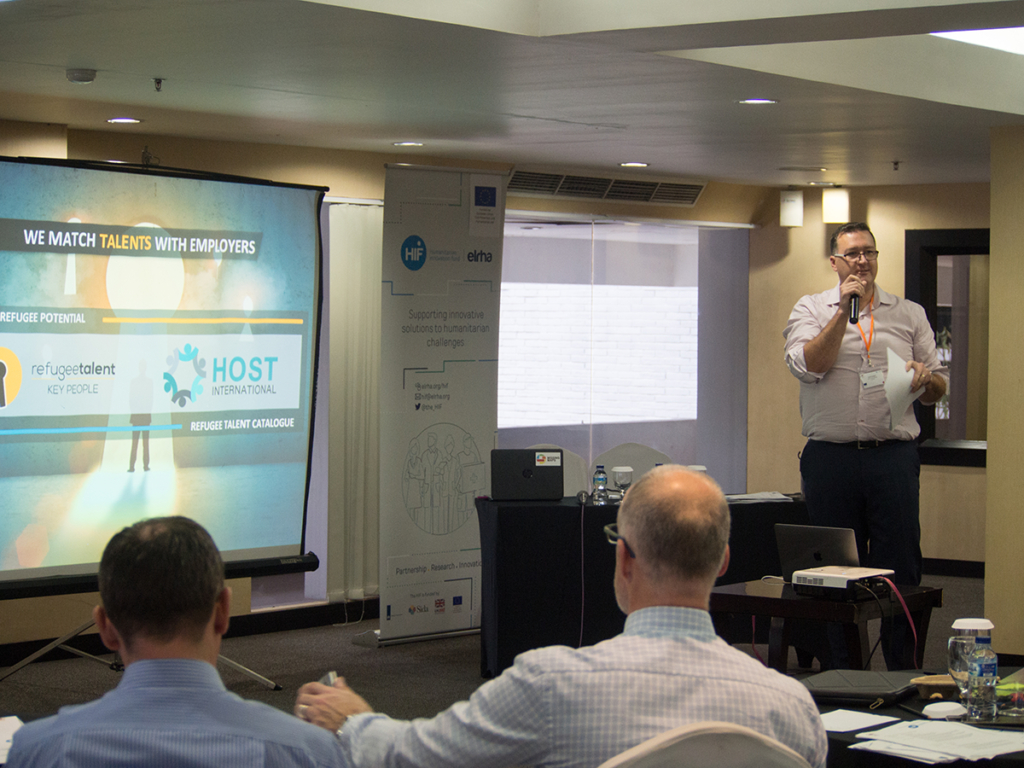 Insights from the workshop helped us identify key areas to work on to further develop our idea. One critical area was visa and legal issues – legal frameworks and administrative structures for implementing employment initiatives for refugees are often complex, and can suffer from internal contradiction or uneven application. All stakeholders would benefit from more transparent and accessible information on refugees’ right to work, relevant visa categories and their implications. Another critical area was government policy barriers: many governments in the Asia Pacific region have restrictive policies and significant ‘grey areas’ in the implementation of policies related to refugees and access to work. This barrier was reinforced during meetings after the workshop with UNHCR Indonesia and Malaysia. We also developed greater understanding of private business partner engagement: particularly among larger employers with labor shortages and a history of recruiting across borders. The main motivation for employing refugees is currently corporate social responsibility, rather than meeting labor needs. Employers’ reasons for the slow up-take of employment of refugees and asylum seekers range from uncertainty about the rules governing the refugees and asylum seekers’ rights to work, and uncertainty about their skills and qualifications, to lower productivity due to a lack of host-country language skills (at least initially), and unfavorable public opinion (competition for jobs and security issues). We also realised we needed to conduct further market research on the most financially sustainable business model for our project. We left the workshop determined to work even harder to find ways to address these issues.
Insights from the workshop helped us identify key areas to work on to further develop our idea. One critical area was visa and legal issues – legal frameworks and administrative structures for implementing employment initiatives for refugees are often complex, and can suffer from internal contradiction or uneven application. All stakeholders would benefit from more transparent and accessible information on refugees’ right to work, relevant visa categories and their implications. Another critical area was government policy barriers: many governments in the Asia Pacific region have restrictive policies and significant ‘grey areas’ in the implementation of policies related to refugees and access to work. This barrier was reinforced during meetings after the workshop with UNHCR Indonesia and Malaysia. We also developed greater understanding of private business partner engagement: particularly among larger employers with labor shortages and a history of recruiting across borders. The main motivation for employing refugees is currently corporate social responsibility, rather than meeting labor needs. Employers’ reasons for the slow up-take of employment of refugees and asylum seekers range from uncertainty about the rules governing the refugees and asylum seekers’ rights to work, and uncertainty about their skills and qualifications, to lower productivity due to a lack of host-country language skills (at least initially), and unfavorable public opinion (competition for jobs and security issues). We also realised we needed to conduct further market research on the most financially sustainable business model for our project. We left the workshop determined to work even harder to find ways to address these issues.
After the workshop, we dived into deeper research on the issues and barriers affecting our proposal. HOST and Refugee Talent are strong believers in collaboration, so we undertook to find partners who shared a passion and belief in the benefits of refugee employment, not just for refugees, but for their host communities as well. To address visa and legal issues, we partnered with Asylum Access Malaysia in their refugee work rights project and TrustLaw, the Thomson Reuters Foundation pro-bono legal service. We have partnered with CSR Asia to proactively engage private sector employment partners and presented at the CSR Asia Summit on ‘The untapped economic potential of Asia’s refugees’ in partnership with the International Rescue Committee Thailand, targeting 450+ business leaders. We are conducting market research and seeking to develop innovative and sustainable business models with leading business development advisors in the Asia Pacific region. Following the workshop, we also received interest from Keio University and Tama Art University in Tokyo to contribute to the development of our project.
When it came to writing our proposal for Seed Funding, the greatest challenge was to synthesise all our findings and research, and a develop a clear and cohesive proposal detailing the steps we would take next to further our innovation proposal. It was also a challenge to work out how we could allocate the seed funding to gain the best value and most promising outcomes to inform the next stage of development.
We were of course thrilled to find out we had been successful in receiving Seed Funding to develop our project. This funding will support us and our network of partners to continue working on developing viable and sustainable ways of providing employment to refugees in the Asia Pacific, while also addressing labor shortages in the region, and ultimately benefiting host communities as well as refugee communities.
